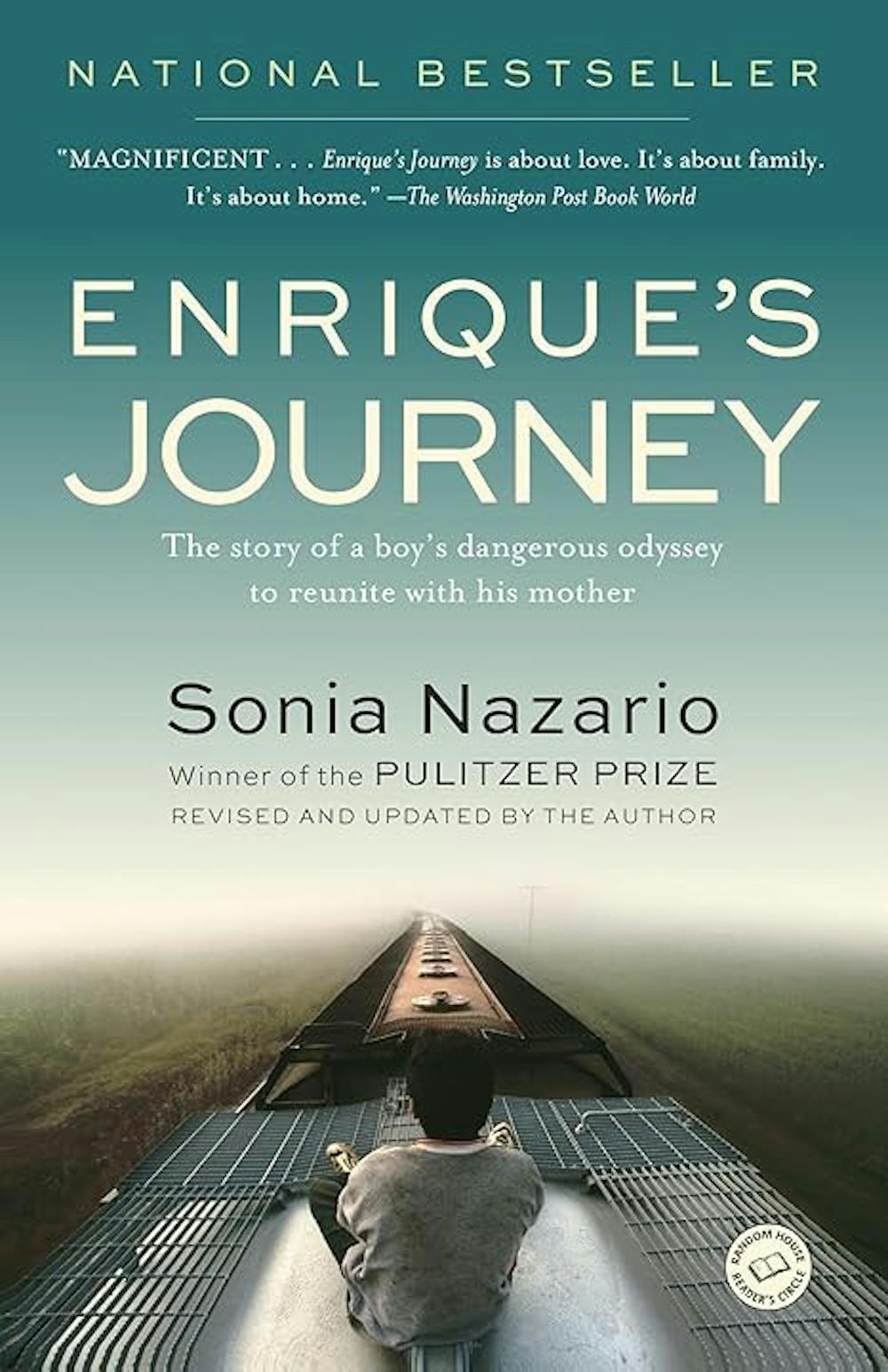On March 14, Pulitzer Prize-winning journalist Sonia Nazario gave an author talk and signing for her book “Enrique’s Journey” at the Albuquerque Museum.
Her talk was framed by recent federal cuts to museum funding, as well as celebrations of cultural diversity.
“Not a lot of museums take on these topics, so congratulations to the Albuquerque Museum,” Nazario said.
Nazario’s writing focuses on several of America’s “most intractable problems,” including hunger, drug addiction and immigration, according to her website.
While working at the Los Angeles Times in the 1990s, Nazario wrote about how thousands of kids went to school hungry in Los Angeles, as well as what life was like for the children of people grappling with addiction at the height of the crack epidemic.
“Enrique’s Journey,” for which Nazario was awarded the Pulitzer Prize for feature writing, was originally published as a series in the L.A. Times in 2003. It was then turned into a book, which became an international bestseller.
The series follows a Honduran boy’s dangerous journey throughout Central and North America to find his mother, who had been working in the United States for over a decade. The story is just one of countless children who share the experience of venturing alone to America to seek asylum.
These mothers “found jobs and would send money home to their kids, but the children wanted to be with their mothers again, and they set off on their own to find them,” Nazario said.
During her travels with Enrique, she recalled seeing “armies” of children migrating across Central America.
The crux of the talk was the issue of journalism versus activism. Nazario, while working with adults and children who were actively suffering, faced the ethical dilemma of stepping in and changing what she saw or reporting without interference, hoping to influence wider social change instead.
She said her readers sent messages about the issue, asking her, “‘Why weren't you an advocate for them?’”
“Some readers were blistering,” Nazario said. “Was I a reporter or was I a human being?”
Get content from The Daily Lobo delivered to your inbox
This issue is magnified by the danger of certain reporting circumstances. Journeying on the tops of trains, as many migrant children are forced to do, came also with the presence of fatal accidents and threats from gang members, Nazario said.
“After two decades of coverage, immigration went from something I reported on to something I truly understood,” Nazario said.
Born in Madison, Wisconsin, Nazario was the first of her family born in America. Her parents immigrated from Argentina, but before that escaped persecution in Syria and Poland.
Nazario’s family moved back to Argentina following the sudden death of her father, she said, and she survived the Dirty War, a period in Argentinian history marked by military dictatorship.
“I think my experiences at a young age made me an ideal candidate to be an activist,” Nazario said.
After several decades as both a journalist and activist, Nazario shared how she is now able to blend the two spheres.
“Yes, I’m a storyteller — but a storyteller in service of knowledge that leads to action,” Nazario said.
Emmett Di Mauro is a freelance reporter for the Daily Lobo. He can be reached at culture@dailylobo.com or on X @dailylobo
Elijah Ritch is a freelance reporter for the Daily Lobo. They can be reached at culture@dailylobo.com or on X @dailylobo






